1775-1776: Revolution & Independence
The MHS is commemorating the 250th anniversary of the American Revolution with exhibitions, programs, educational resources, digital content, and more.
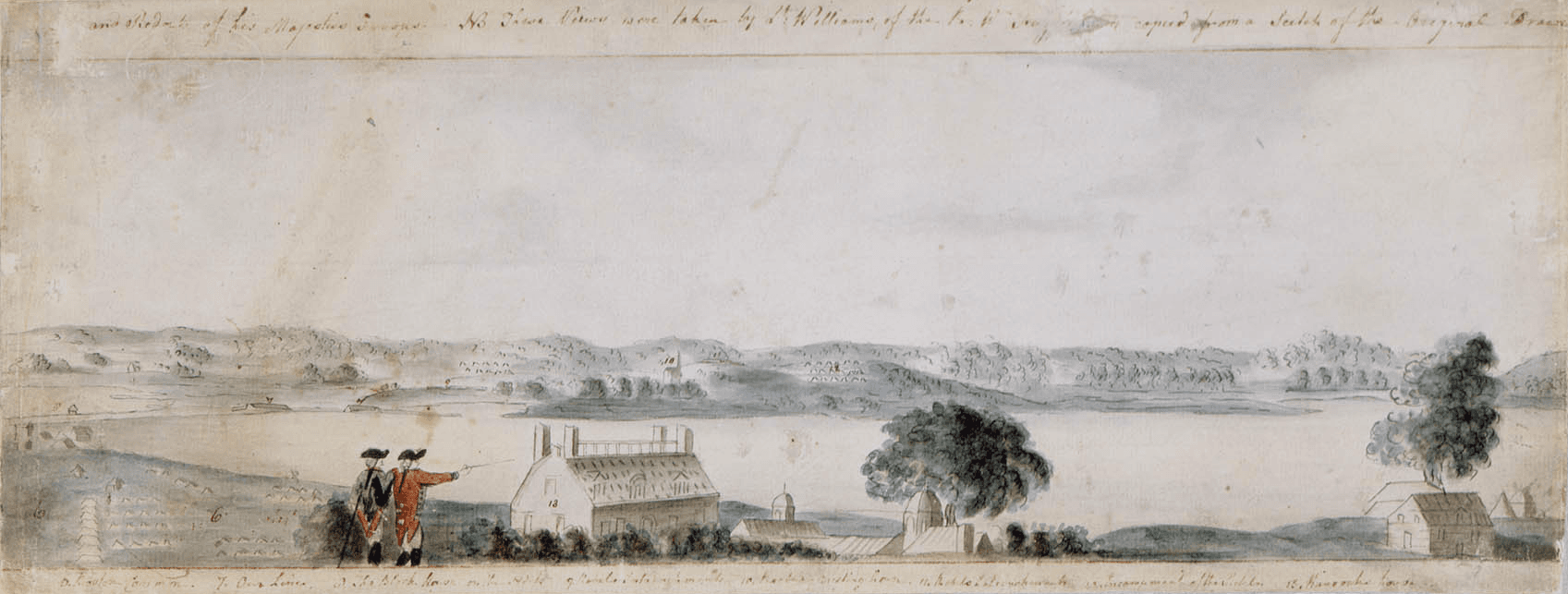
The MHS is commemorating the 250th anniversary of the American Revolution with exhibitions, programs, educational resources, digital content, and more.
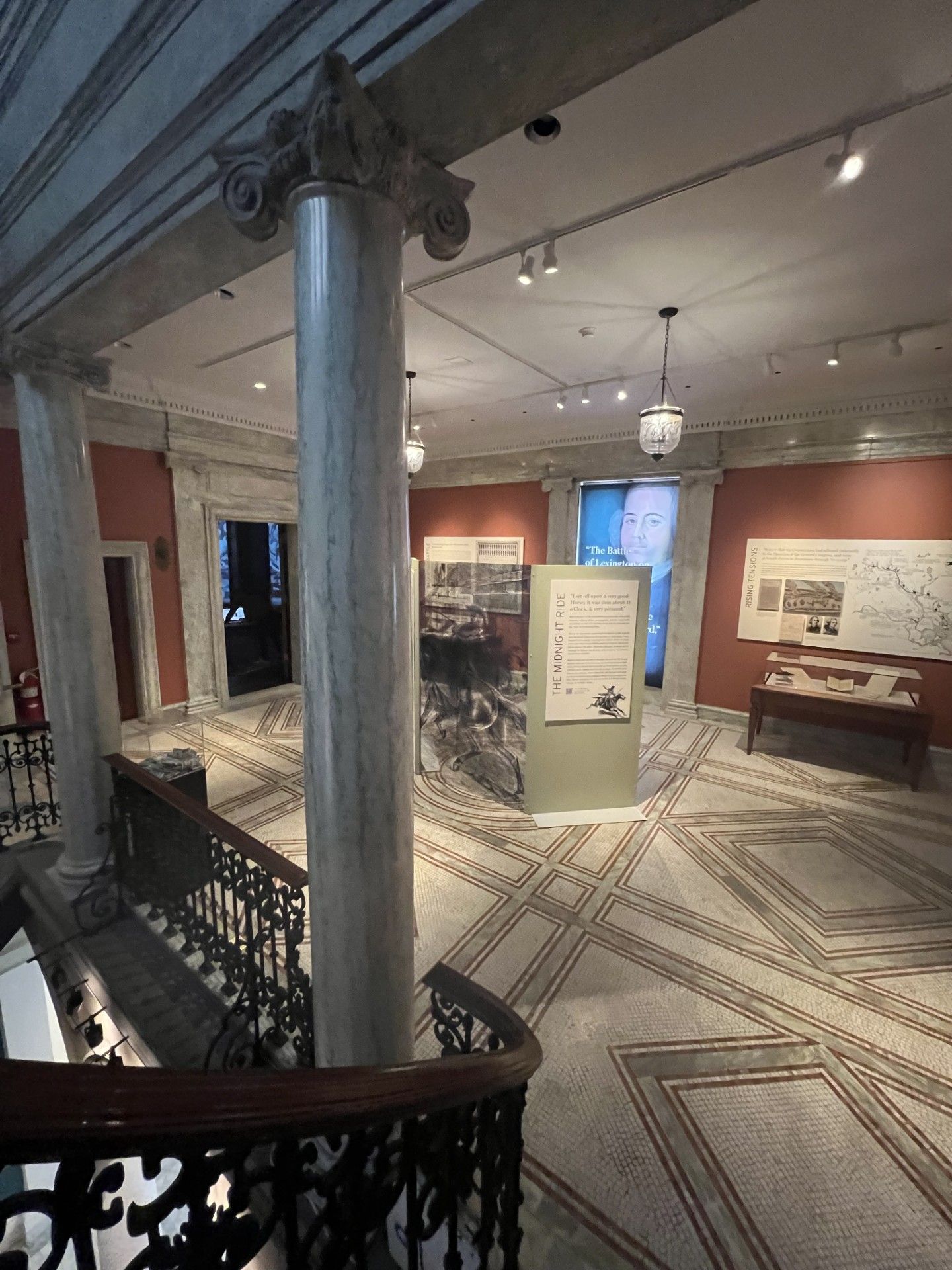
1775: Rebels, Rights & Revolution
Explore major Massachusetts events in the first year of the American Revolution through letters, diary accounts, and artifacts from the MHS collections
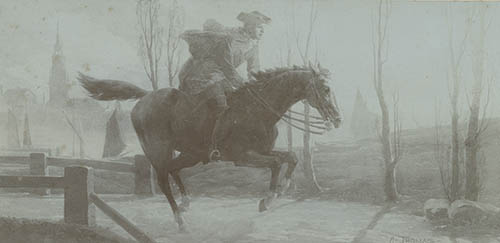
Fact or Fiction Game
Test your Paul Revere knowledge by answering TRUE or FALSE to a series of questions.
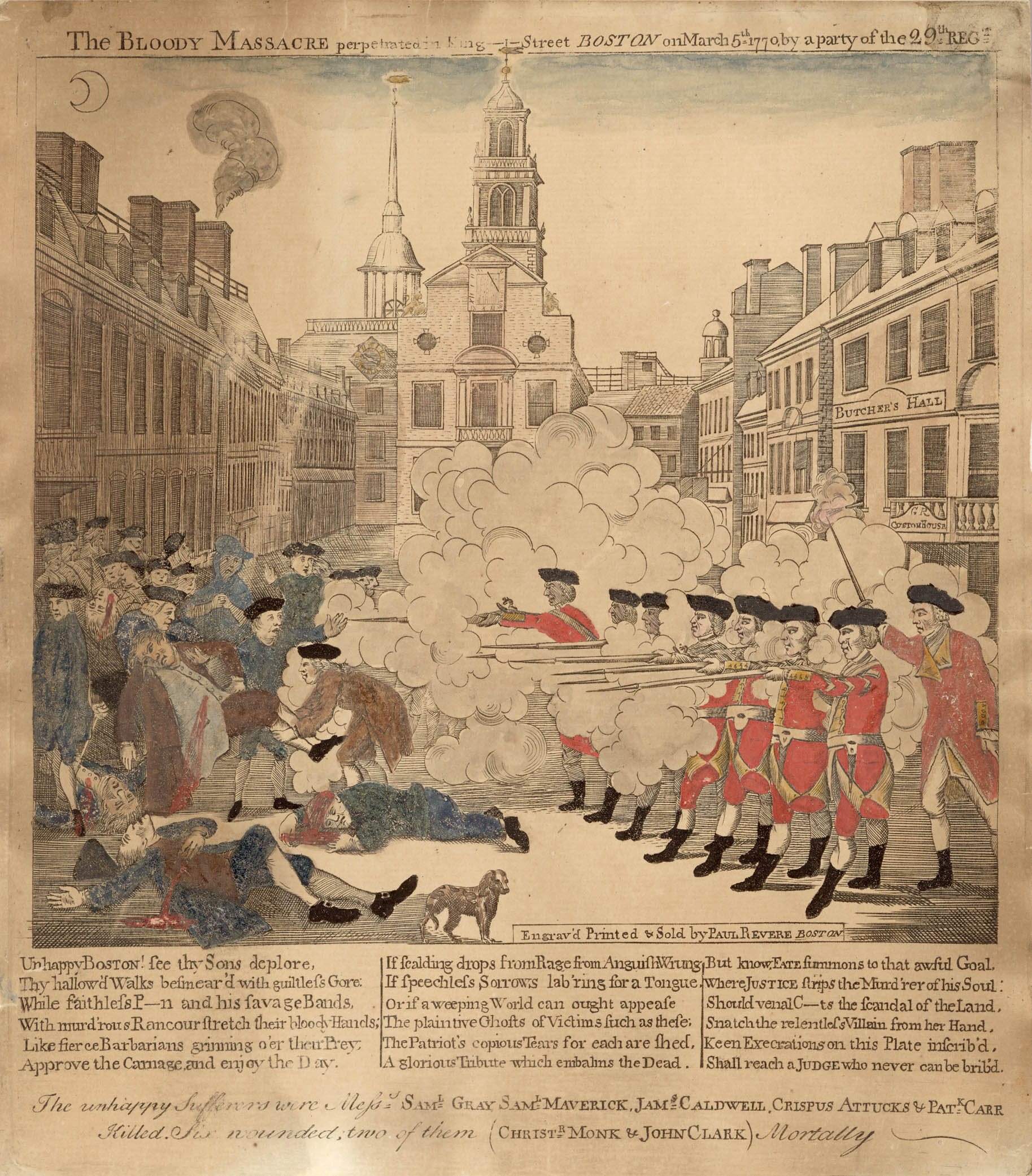
A Hotbed for Revolution
Test you understanding of the decade leading up to 1775 by looking at a series of events and arranging them in the correct order.
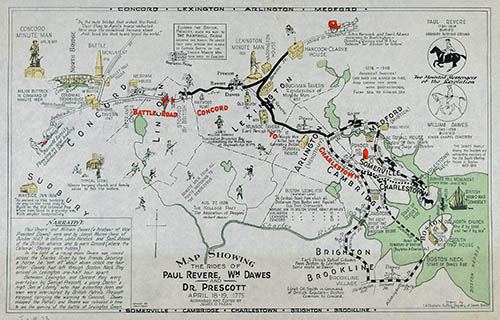
Paul Revere’s Ride in 2025
Ever wondered what Paul Revere's midnight ride looks like today? Watch this 4 1/2-minute video to follow the route (by car).
Tensions were high between Great Britain and the American colonies in the decade leading up to the “shot heard round the world” fired on April 19, 1775. Following Britain’s victory in the Seven Years’ War in 1763, Parliament was left with a huge debt to pay. They decided to share the burden with the colonies by establishing various taxes. This led to years of unrest and uprisings in Massachusetts, igniting the flame of revolution.1764: Parliament passes the Sugar Act, setting off a debate on colonial rights and taxation.
In February and March 1775, British General Thomas Gage sent two officers to travel the roads west from Boston to gather and record information. Based on intel received from these missions, Gage decided to seize weapons and gun powder being stored in Concord, Massachusetts. On the Afternoon of April 18, 1775, Gage secretly sent out advance guards. They are noticed by the locals. Reports trickle into Dr. Joseph Warren that the British would march that night. Their actual route was unknown.
Scroll or use the buttons on the right to navigate
April 18, 1775
- Early Evening
William Dawes sets out for Lexington across Boston Neck. He had befriended British guards, allowing him to pass easily out of town.
April 18, 1775
- 10pm
Dr. Warren sent for Paul Revere to spread an alarm. Friends row Revere across the river to Charlestown. Two lanterns briefly hang from the Old North Church steeple—a pre-arranged signal to those on the opposite shore meaning the British were going by water. About the same time, British troops begin to gather for their march to Lexington.
April 18, 1775
- 11pm
Revere reaches the opposite shore and mounts his horse. He is almost captured but alters his route, going through Medford, alarming almost every house between Medford and Lexington. The alarm spreads throughout the area.
April 18, 1775
- 12 am
Revere arrives at Jonas Clarke’s house in Lexington where Samuel Adams and John Hancock are sleeping. Dawes arrives approximately 30 minutes later.
April 18, 1775
- 1 am
John Parker musters his militia on Lexington Green “to consult what to do, and concluded not to be discovered, nor meddle or make with said Regular troops.” Militia members disperse throughout Lexington.
April 18, 1775
- 1 am
The British troops are across the river.
April 18, 1775
- 1 am
Warned of the approaching British, residents of Concord finish hiding military stores that had not earlier been removed from town.
April 18, 1775
- 2 am
Revere and Dawes set off for Concord and meet Samuel Prescott who had been out courting. Discovering him to be a true son of Liberty, they engage him in spreading the alarm. Dawes and Revere are captured, but Prescott escapes through a countryside he knows well. Provisions for British troops finally arrive and the order to march is given.
April 18, 1775
- 3 am
Members of the Committee of Safety staying at the Newell Tavern in Menotomy are forced to go hide in the cornfields out back as British troops march by.
April 18, 1775
- 4 am
Drummer William Diamond is sent to Lexington Common to assemble the militia. In total, 77 men gather to face the British force of 700 men, members of light infantry and grenadiers.
April 18, 1775
- 4:30 am
Provincial scouts sent out from Lexington are captured by the British. They inform their captors that there are hundreds of troops mustered on Lexington Green.
April 18, 1775
- 5 am
British troops rush toward the militia on Lexington Green. Parker orders his men to disperse, and in the ensuing confusion a shot is fired. By the end of the melee, 7 Provincials are dead, 1 mortally wounded.
April 18, 1775
- Daybreak
Concord troops set out toward Lexington.
April 18, 1775
- 7 am
Concord troops encounter British troops marching in their direction. They turn around and march back to Concord.
April 18, 1775
- 8 am
British troops arrive in Concord—it took 11 hours for them to go the 17 miles from Boston. Provincial troops keep an eye on the British from the hillsides. Militia men from surrounding towns arrive by the minute.
April 18, 1775
- 8 am
British troops are ordered to secure the North Bridge. They go to Barrett farm where a cache of war supplies was thought to be stored.
April 18, 1775
- 8 am
Smoke is seen, leading Provincials to believe the British are burning the town. They advance on British troops at North Bridge. The British retreat to the opposite shore. As the Provincials get within range, they open fire, killing two—the Provincials under Major Buttrick of Concord are ordered to fire. They kill three and wound nine. This exchange becomes known as the 'Shot heard round the world.'
April 18, 1775
- 9 am
Earl Percy, with British reinforcements, leaves Boston. They were scheduled to leave at 4 am, but orders were not received by the commander of the brigade. They were further delayed by damage to the bridge over the Charles River.
April 18, 1775
- 12 pm
John Parker and his remaining troops begin marching towards Concord from Lexington. Just after noon, British troops begin their weary retreat to Boston, arriving at Meriam’s Corner where the gathering militia and minutemen opened fire. The British faced a 15-mile return to Boston through heavy fire from the sides and rear in country that was not familiar to them. The British troops were not experienced with this type of warfare, which became more and more intense as they moved East towards Boston. Fresh colonial troops kept arriving from towns further away.
April 18, 1775
- 2 pm
British troops, retreating from Concord under heavy guerrilla fire, arrive at Lexington where Earl Percy’s reinforcements had finally arrived 'saving them from inevitable destruction.'
April 18, 1775
- 4 pm
British troops find themselves surrounded and outnumbered nearly 2 to 1 by Provincials. A desperate house-to-house battle ensues at Menotomy (current-day Massachusetts Ave., Arlington). Forty British and twenty-five colonials are killed in what the Mass. Provincial Congress later described as 'barbarous devastation…almost beyond description… plundering and burning of dwelling houses… driving into the street women in childbed, killing old men in their houses unarmed.'
April 18, 1775
- 7:30 pm
British troops finally return to Boston and the Siege of Boston begins.
The Revolutionary War resulted in the United States as a sovereign nation, one rooted in democratic principles and representative government. Yet debate continues over the meanings of rights and liberties. Consider the following questions and let us know what you think.